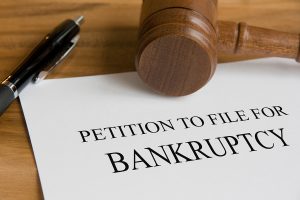Unsecured Debts vs. Secured Debts

If you are deep in debt and aren’t able to dig out from under your financial troubles, you may want to consider filing for bankruptcy. Bankruptcy is a procedure available under federal law that allows debtors to discharge certain debts. When a debt is discharged you are no longer liable for the debt, but instead are generally required to make a partial repayment based on a court ordered payment plan. This process usually involves liquidating the debtor’s assets in order to repay creditors and give the debtor a fresh financial start.
Does this sound too good to be true? Before you get too excited about the prospect of filing for bankruptcy it is a good idea to consult a knowledgeable bankruptcy lawyer about the negative consequences and limitations of declaring bankruptcy. This article briefly outlines one big limitation of bankruptcy, the fact that not all types of debt are eligible to be discharged.
Bankruptcy Can Only Discharge Unsecured Debts
Filing bankruptcy can only discharge unsecured debts. Secured debts cannot be wiped out by bankruptcy, except for in some circumstances. For example, an individual may surrender the collateral and thus will not be liable for the collateral or applicable deficiency balance in a Chapter 7 bankruptcy. It’s important to work with a bankruptcy lawyer so you not only properly list your debts as being secured, unsecured or a priority debt, but so that you also understand which debts can and cannot be discharged.
But what’s the difference between secured and unsecured debt? The main difference is that secured debts are often tied to an asset that acts as collateral for the loan. In these situations lenders place a lien on the asset so that they have a legal right to take the asset if you are unable to keep up with your loan payments. For example, if you borrowed money to buy your house your bank likely holds the mortgage on the property so that they have a legal right to the asset if you default on your loan. On the other hand, unsecured debts are not secured by property. Therefore, unsecured creditors must obtain a judgment in court before they can go after a defaulting debtor’s assets.
Understanding whether you have secured debts, unsecured debts, or a combination of both is very important when assessing whether or not filing for bankruptcy is a good option for you.
Examples Of Unsecured Debts
The categories of debt listed below generally qualify as unsecured debts, and are therefore potentially eligible to be discharged by bankruptcy:
- – Credit card debt,
- – Medical bills,
- – Lawyer fees, or
- – Rent payments.
Examples Of Secured Debts
The following types of debt are generally considered to be secured debts, and therefore not eligible to be discharged via bankruptcy:
- – Local, state, and federal tax debt,
- – Spousal support,
- – Child support,
- – Personal injury judgments,
- – Civil or criminal fines,
- – Mortgages, or
- – Car loans.
Corporate Bankruptcy: Secured And Unsecured Creditors
Corporations also have secured and unsecured debt. When a corporation files for bankruptcy, how are assets divided? When a corporation’s assets are being divided during bankruptcy the difference between secured and unsecured debt is crucial because these classifications determine the order in which the company’s creditors will be paid. According to the U.S. Securities and Exchange Commission, secured creditors are paid first, followed by unsecured creditors, and stockholders have the last claim.
How Can We Help?
If you are in the Chicago area and are considering filing for bankruptcy, or if you would simply like more information, contact an experienced local bankruptcy lawyer from the Bentz Holguin Law Firm, LLC at 312-647-2116.


